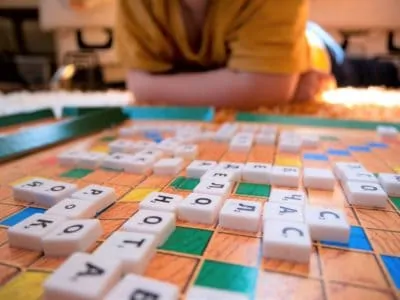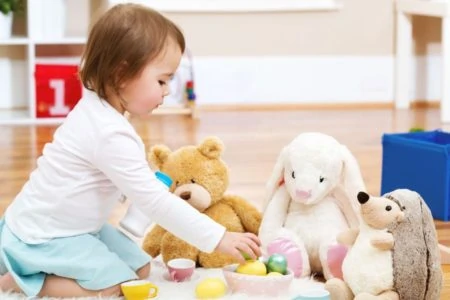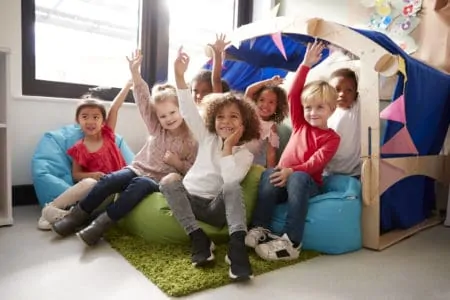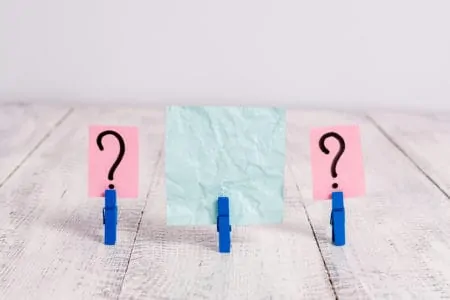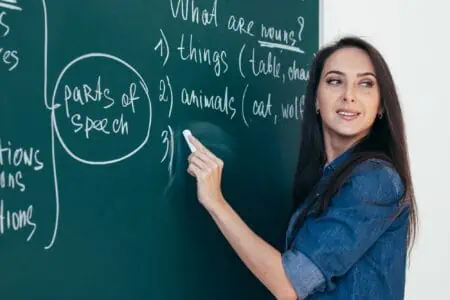Word games are the ultimate multitaskers: they bust boredom and boost literacy simultaneously. Whether you need an impromptu play idea for a rainy day, a way to kill time in a waiting room, or a structured family game night, there is an option here for you.
We’ve curated a list that covers everything from screen-free verbal games and free printables to classic board games and traditional favorites. Get ready to turn language learning into serious fun.
Key Takeaways
- Verbal games are versatile: Classics like I-Spy and The Prime Minister’s Cat require zero prep and improve vocabulary anywhere.
- Board games build social skills: Favorites like Scrabble Junior and Bananagrams teach spelling, turn-taking, and healthy competition.
- Printables save the day: Low-cost options like word searches and Mad Libs are perfect for quiet time or travel.
- Online games can be healthy: Moderated digital games offer interactive ways to practice sight words and spelling patterns.
Classic Word Games for Kids
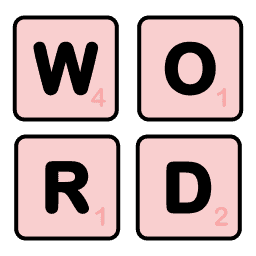
This list starts with the ultimate “parent hacks”, games you can play verbally with zero preparation.
These are perfect for car rides, lines at the grocery store, or anytime you need to distract the kids without reaching for a screen.
I-Spy
It is a classic for a reason. I-Spy works for toddlers, teens, and everyone in between. The “spy” picks an object and announces, “I spy with my little eye, something beginning with…” followed by the first letter of the object. The first player to guess correctly takes over as the spy.
Pro Tip: For toddlers who don’t know their letters yet, use colors instead of letters (e.g., “something that is blue”).
The Memory Train (I Went To The Zoo)
This is fantastic for building working memory. The first player starts with, “I went to the zoo and I saw a…” and chooses an animal (e.g., a Bear). The next player repeats the phrase, lists the previous animal, and adds their own.
You can play two ways:
- Alphabetical: The first animal starts with A, the second with B, and so on.
- Free style: Pick any animal, making the memory string much harder to track.
To make this easier for younger kids, you can practice the alphabet sounds before playing.
The Prime Minister’s Cat
This is a stealthy way to teach adjectives. The first player says, “The Prime Minister’s cat is an [Adjective] cat,” starting with the letter A. For example, “The Prime Minister’s cat is an Angry cat.”
The next player uses B (“Beautiful”), and you continue through the alphabet. It gets hilarious when kids try to find words for tricky letters like Q and X.
Hink Pink
Hink Pink is a rhyming riddle game that encourages critical thinking. One player thinks of a pair of rhyming words (like “Fat Cat”) and gives a definition as a clue.
Example:
- Clue: “An overweight feline.”
- Answer: “Fat Cat!”
Start with one-syllable words for beginners. For older kids, try “Hinky Pinkies” (two syllables) like “Better Letter.”
Ghost
This is a strategy spelling game for older kids. Players take turns adding a letter to a growing word fragment. The goal is to not be the person who completes a valid English word (of more than 3 letters).
If the current fragment is “B-R-E-A,” you don’t want to add “D” (Bread) or “K” (Break) because that ends the word, and you lose. If a player suspects you are bluffing and there is no word that starts with the current fragment, they can challenge you.
Shopping List
Similar to the memory train, this game focuses on phonics. The first player says, “I’m going to the store to buy [Item A].” The next player must choose an item that begins with the last letter of the previous item.
If player one buys Apples, player two must buy something starting with S, like Soup. The next player needs something starting with P. Keep the chain going until someone gets stumped.
Words In Words
Grab a scrap of paper for this one. Write a long word at the top of the page (e.g., “ELEPHANT”). Set a timer for two minutes.
Everyone rushes to write down as many smaller words as possible using only the letters available in the master word (e.g., “pant,” “ant,” “let”). This is great for elementary schoolers learning to deconstruct language.
Meanings (Synonyms)
Perfect for expanding vocabulary. One player picks a common word, like “Run.”
Everyone races to write down words with the same meaning (Sprint, Jog, Dart, Dash). One point per valid word; the person with the most points wins. It is best suited for middle schoolers who need to diversify their writing.
Tutti Frutti (Categories)
Draw a grid on a piece of paper. Pick a letter (e.g., M) and five categories (e.g., Animal, Food, Name, Place, Object).
Set a timer. Players must fill in every category with a word starting with M (Monkey, Melon, Mary, Mexico, Mat). It is fast-paced and forces quick thinking.
Mouse And Cheese (Hangman Alternative)
The traditional “Hangman” imagery can be a bit grim, so we prefer “Mouse and Cheese.” Draw steps leading up to a wedge of cheese. Draw a mouse at the bottom.
One player thinks of a word and draws dashes for the letters. The other guesses letters. For every wrong guess, the mouse climbs one step closer to the cheese (or a cat!). If they guess the word before the mouse is caught, they win.
Word Ladders
Draw a ladder. Write a word at the top (e.g., CAT) and a word at the bottom (e.g., DOG).
The challenge is to get from CAT to DOG by changing only one letter at a time, creating a real word at every step (CAT -> COT -> DOT -> DOG). It is a brilliant logic puzzle for kids 7 and up.
Word Board Games for Kids
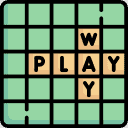
There is an incredible variety of word-based board games for kids available today. We looked for games that balance educational value with genuine fun, ensuring they don’t feel like “homework” in disguise.
Here are our top picks for family game night, ranging from classic spelling challenges to high-energy matching games.
Boggle Junior

Best For: Preschoolers (Ages 3-6)
Boggle Junior transforms the classic shaker game into an accessible matching activity. It comes with 30 word/picture cards and large letter dice. You can play it in “match” mode for toddlers (finding the letters to match the card) or cover the words for early spellers to test their memory.
Why it’s a winner: It grows with your child, moving from simple letter recognition to independent spelling.
Zingo Sight Words
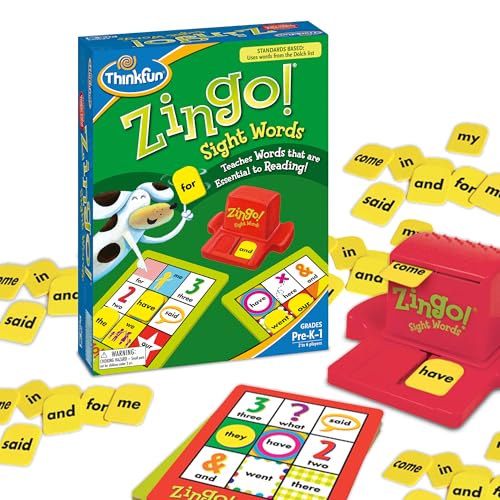
Best For: Early Readers (Ages 4-7)
Think Bingo, but faster and more educational. The Zingo “Zinger” dispenses tiles, and players race to match the sight words on the tiles to the squares on their cards.
Why it’s a winner: It helps kids recognize high-frequency words instantly (sight reading) rather than sounding them out every time. Plus, sliding the Zinger is satisfying fun.
Scrabble Junior

Best For: Transitioning to “Big Kid” Games (Ages 5-8)
This board features two sides. Side one matches letter tiles to words already printed on the board (great for matching). Side two is a simplified grid for building your own words.
Why it’s a winner: It removes the intimidation of the blank board and complex scoring of adult Scrabble, letting kids focus on the letters.
Blurt!

Best For: Vocabulary Building (Ages 7+)
This is a fast-paced game of auditory comprehension. One player reads a definition (e.g., “The hair that grows on your face”), and players race to “blurt” out the answer (“Beard!”).
Why it’s a winner: It creates a lively, noisy atmosphere that feels nothing like school, yet significantly improves quick-recall vocabulary.
Sequence Letters

Best For: Phonics and Strategy (Ages 4-7)
Players match letter cards in their hands to the beginning sounds of pictures on the board (e.g., having a ‘B’ card and placing a chip on the ‘Ball’). The goal is to get five chips in a row.
Why it’s a winner: It combines phonics with basic strategy (blocking opponents), keeping it engaging for adults playing along too.
Bananagrams

Best For: Travel and Speed (Ages 7+)
It’s like a crossword puzzle race without a board. Players dump the tiles and race to use all their letters in a connecting grid. If you yell “Peel!”, everyone has to take another tile.
Why it’s a winner: It comes in a cute banana pouch, takes up zero space, and rounds can be played in 15 minutes. Check out Bananagrams Jr. for simpler vowel/consonant distinctions.
Goliath WordSearch

Best For: Visual Scanners (Ages 7+)
This turns the solitary activity of a word search into a competitive group sport. The board rotates, revealing words that players must race to find and mark with their colored translucent tiles.
Why it’s a winner: It encourages pattern recognition and focus in a high-energy setting.
Upwords
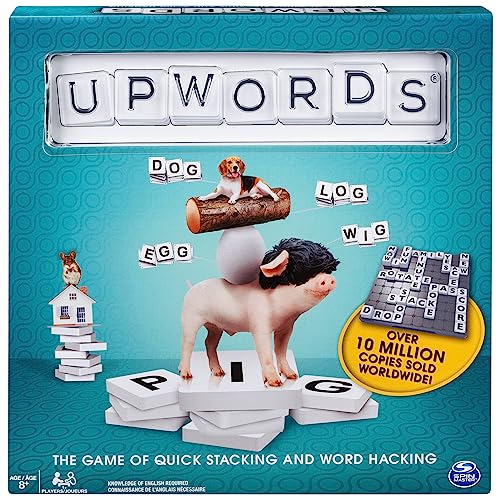
Best For: 3D Thinking (Ages 8+)
In Upwords, you can change a word by stacking tiles on top of existing ones (changing “CAT” to “BAT” by stacking a B over the C).
Why it’s a winner: It feels more dynamic than standard crossword games and encourages kids to see how changing a single letter alters meaning.
Wordical

Best For: Dice Lovers (Ages 8+)
This compact game involves rolling vowel dice and combining them with consonant cards in your hand to form the highest-scoring word.
Why it’s a winner: It strikes a nice balance between luck (the roll) and skill (your vocabulary), giving younger players a fighting chance against adults.
Quiddler

Best For: Card Game Fans (Ages 8+)
Quiddler is played in rounds, with players trying to arrange their entire hand of cards into words. You get bonuses for the longest word and the most words.
Why it’s a winner: It is highly portable and great for card game lovers. It reinforces spelling in a low-pressure environment.
Printable Word Games for Kids
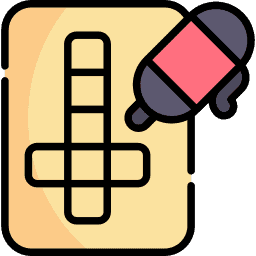
Sometimes you need a low-tech, quiet activity that costs nothing. Printable games are excellent homeschooling resources or restaurant distractions.
These activities help keep literacy skills sharp without needing a Wi-Fi connection.
Word Searches
Word searches are the bread and butter of printable games. For younger kids, look for grids where words only run horizontally and vertically. For older kids, find puzzles with diagonal and backward words to really test their scanning skills.
Anagrams
Print a list of scrambled words related to a theme (like “Space” or “Animals”) and challenge your child to decode them.
Tip: Ensure the sheet has plenty of white space. Kids often need to rewrite the letters in circles or different groupings to visualize the answer.
Word Ladders
While you can draw these yourself, printable versions often come with cute illustrations that act as clues for each rung of the ladder. This helps guide children who might get stuck on the logic part of the puzzle.
Secret Codes (Cryptograms)
Part detective work, part spelling practice. These printables use symbols (like stars or shapes) to represent letters. Your child uses a key to decode a secret message or joke. It is a fun way to practice letter recognition without realizing it.
Word Bingo
Print out Bingo cards populated with sight words or vocabulary terms instead of numbers.
Two ways to play:
- Standard: You call out the word, they find it.
- Road Trip: They mark off words they see on billboards or road signs while driving.
Sight Word I-Spy
This is a hidden picture game, but with words. The page is filled with tiny words written in different fonts and directions. Children have to find and circle all the instances of a specific word (e.g., find the word “THE” 10 times). It builds rapid word recognition.
Mad Libs
If you want to hear your child belly laugh, this is the way. Printable Mad Libs ask for parts of speech (noun, verb, adjective) to fill in the blanks of a story.
The result is usually nonsense, but the process teaches grammar parts better than any textbook.
Printable Boggle
Sometimes the noise of shaking the plastic Boggle box is too much. A printable grid of random letters offers the same challenge, finding connected words, in a silent format. This is great for quiet time.
Word Match
Simple but effective. Draw a line from the word on the left to the corresponding picture on the right. To increase difficulty, use words that look similar (e.g., “Ball” and “Bell”) to ensure your child is reading the whole word, not just guessing by the first letter.
Crosswords
From picture clues for kindergarteners to cryptic riddles for teens, crosswords force children to recall spelling and meaning simultaneously. It’s excellent for synonym practice.
Online Word Games for Kids

Screen time doesn’t have to be mindless. When used intentionally, online games can reinforce spelling rules and phonics (1).
We selected these ten games because they are free, browser-based (no bulky downloads), and focused on learning.
Audio Words
This is essentially “Concentration” or “Memory” for your ears. Kids click a card to flip it, and the game reads the word aloud. They must find the matching card. It is perfect for auditory learners and emerging readers.
Word Wipe
A high-pressure puzzle game where kids link adjacent letter blocks to form words. Once the word is formed, the line is “wiped,” and blocks above fall down. It combines Tetris-style physics with vocabulary searching.
Letter Dash
A simple, fast-paced game where dashes appear on the screen representing a word. The player must guess the letters before the time runs out. It’s a digital, non-violent version of Hangman.
Animal Crosswords
Turtle Diary offers a bright, animated interface perfect for second graders. Since every answer is an animal, it limits the scope, making it less frustrating for kids who get overwhelmed by open-ended crosswords.
PBS: Vocabulary Games
PBS Kids is the gold standard for safe, educational web content. Their vocabulary section links games to beloved shows like WordGirl and Martha Speaks. It helps reluctant learners engage because they already love the characters.
Free Words
This is a straightforward anagram game. You get six letters and a set of empty slots. The goal is to discover as many words as possible from that combination. It’s clean, distraction-free, and great for pure brain training.
Word Hunter
Hosted by CBC Kids, this is a polished word search game. You can choose from three difficulty levels and various themes (Sports, Nature, etc.). It’s a reliable, safe site with no intrusive ads.
Freerice Vocabulary
Play with a purpose. This game presents a word and four definitions. For every correct answer, the United Nations World Food Program donates rice to people in need. It turns vocabulary drills into a charitable act, which is a great motivator for empathetic kids.
Wordshake
From the British Council, this game gives you a 4×4 grid and three minutes to make as many words as possible. It’s similar to Boggle but optimized for web browsers.
Word Unscramble
Letters appear in floating bubbles and slowly sink toward the bottom of the screen. Kids must drag and swap the letters to unscramble the word before they hit the ground. It adds a layer of urgency that keeps kids engaged.
Benefits of Word Games for Kids
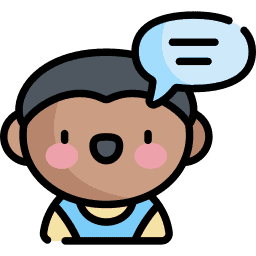
Literacy isn’t just about decoding marks on a page; it’s about communication. Word games help children understand that language is a tool for expressing thoughts, feelings, and information (2).
Beyond the obvious spelling and reading improvements, these games offer softer skills:
- Focus and Patience: Searching for a word in a grid requires sustained attention.
- Resilience: Losing a round of Bananagrams teaches kids to handle frustration.
- Social cues: Verbal games rely on listening carefully to others and taking turns.
FAQs
Not Just A Game
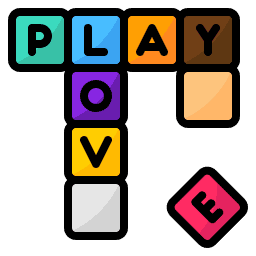
Games were once seen as just a way to kill time, but we now know they are powerhouses for social and cognitive development.
By introducing word games to your routine, you aren’t just teaching your child how to spell “Cat.” You are giving them the tools to communicate, problem-solve, and connect with the world around them.
Plus, you get to have a little fun in the process. That is a win-win in our book.
